Putting Heads Together on Project-Based Learning
45 institutions contributed to Duke symposium on collaborative, project-based learning in higher education
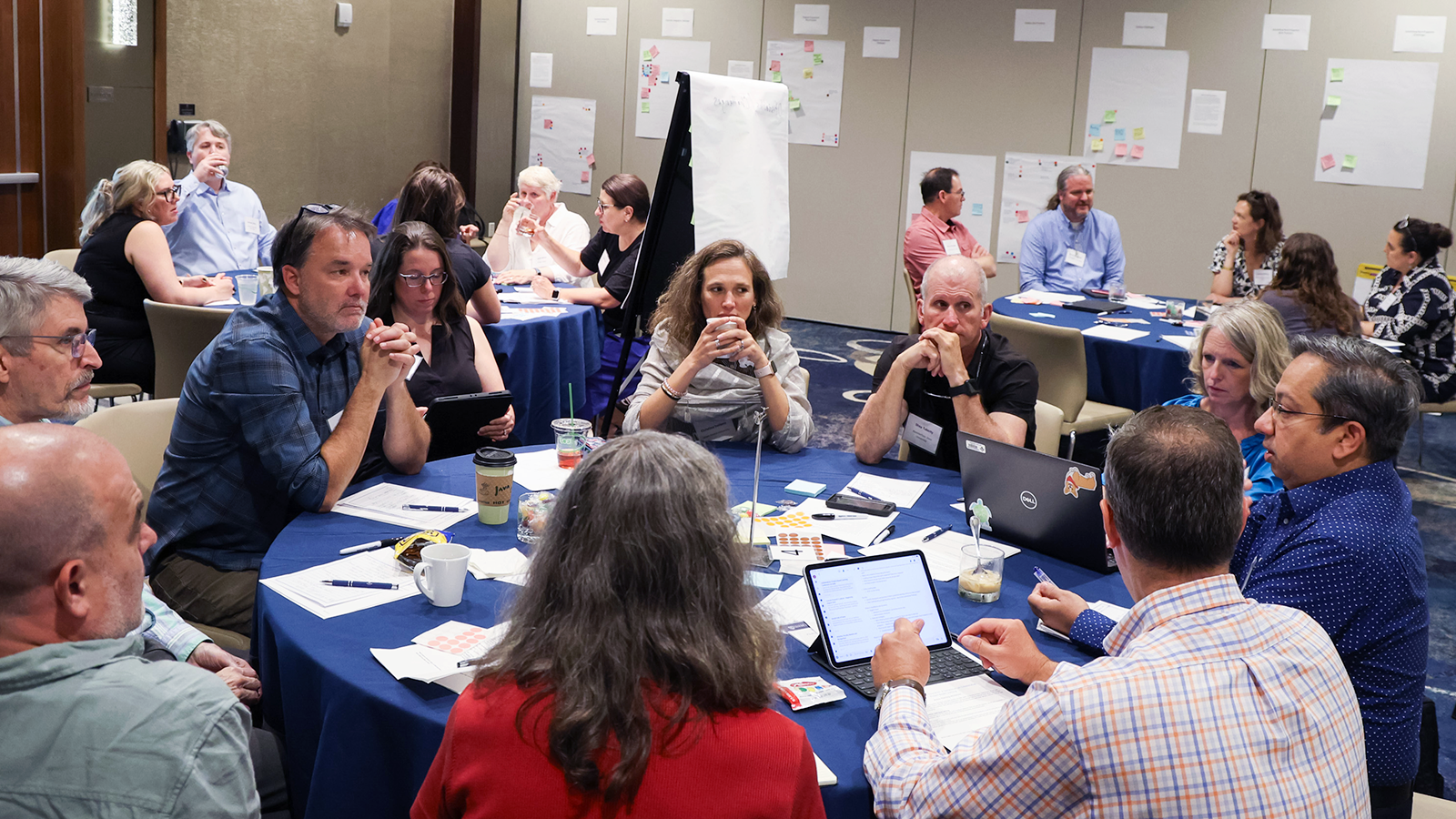
Back in 2014, as Duke’s Bass Connections program launched, four professors were collaborating on a research initiative to examine how industrialized democracies respond to disasters and other crises. They realized that the new program might help them address some pivotal unanswered questions.
The scholars proposed a Bass Connections project and engaged with key leaders at U.S. National Transportation Safety Board and U.S. Chemical Safety Board. The resulting team of graduate and undergraduate students “did a spectacular job,” said Ed Balleisen, professor of history and public policy and vice provost for interdisciplinary studies. “That experience profoundly reshaped my thinking about the potential of blending interdisciplinary research and education.”
A decade later, Bass Connections is going strong. In the program’s first ten years, more than 5,500 members of the Duke community engaged in 830 research projects alongside external partners from around the world.
As program leaders analyzed the impact of this model of collaborative, project-based learning on student development and applied research outputs, they shared lessons with other universities and sought to learn from them as well.

This summer, to catalyze the scaling and spread of similar practices, Bass Connections convened a symposium on collaborative, project-based learning in higher education. Over two days in June, 120 faculty members, deans, vice provosts, administrators and postdocs from 45 institutions gathered in Durham. They came from large research universities, liberal arts colleges, urban and regional universities, and community colleges.
Beforehand, they read a set of case studies* from 15 innovative programs in the U.S. and Canada.
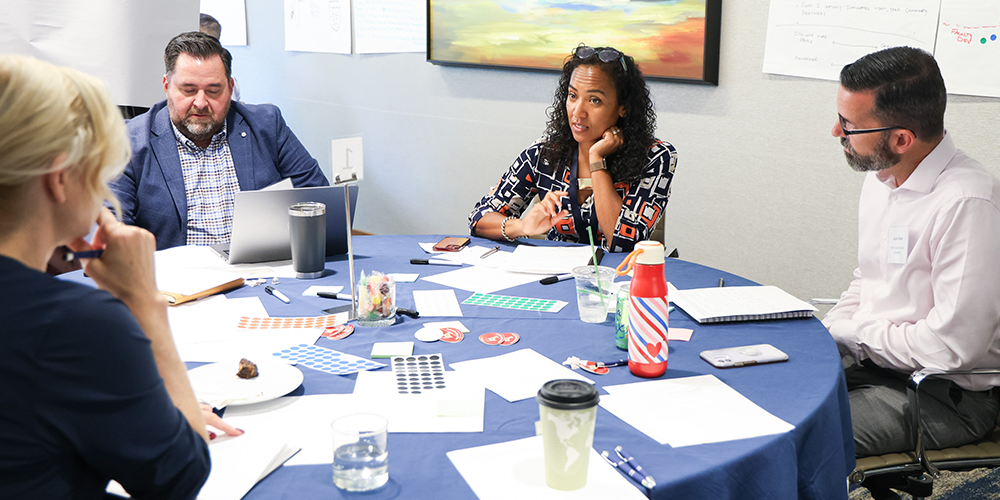
On the first day, four panels explored how a diverse array of institutions embed collaborative, project-based work into the student experience. The discussion focused on such themes as the need to prepare students and faculty to engage in collaborative projects; the challenge of developing sustainable models for faculty engagement; and the opportunities for centering communities in university research.
Scaffolding and Supporting Effective Collaboration
When it comes to setting up project teams of students and faculty for success, Bass Connections Director Laura Howes recommended adoption of a flexible structure with targeted support around best practices for teamwork, which allows teams to innovate while avoiding common traps. “We’ve developed a set of resources guided by what we have learned from studying our teams over ten years,” Howes noted. For example, annual evaluations indicate that teams struggle when roles are not clearly defined, so teams are encouraged to make use of a project charter template.
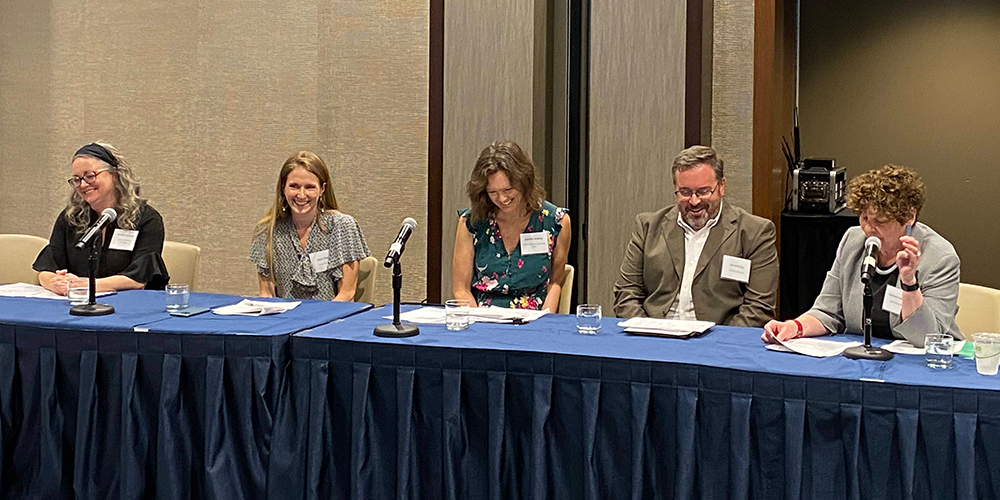
Now at Appalachian State, former Duke faculty member Christine Ogilvie Hendren drew on her experience with Bass Connections to help create Research-to-Action Multi-Disciplinary Projects (RAMP). The school’s new program, now entering its third year, was piloted around two course-based research projects: one on operationalizing the campus climate action plan and the other on developing solutions for phosphorus sustainability.
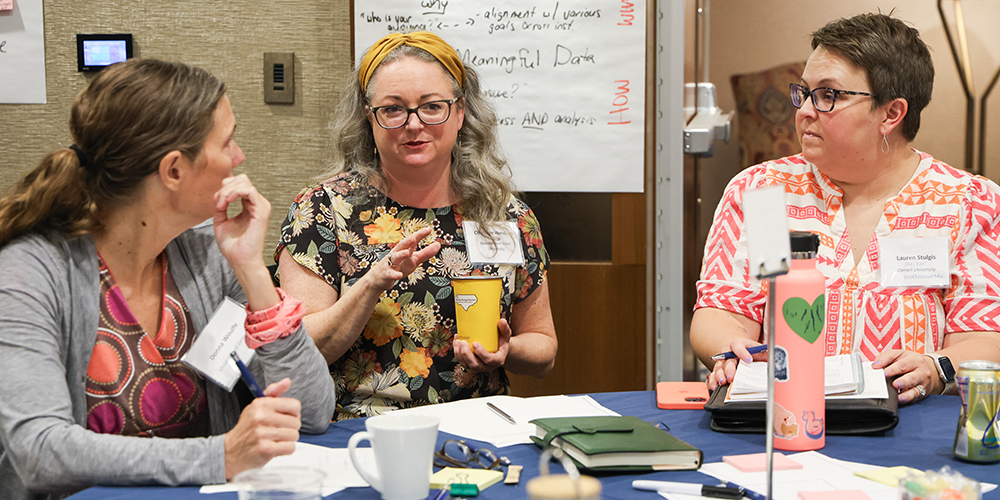
Scaling and Embedding Project-Based Learning in the Curriculum
While Bass Connections is a decade old, Worcester Polytechnic Institute has 50 years of lessons to share. “In the early ’70s, we threw out our entire curriculum,” said Kristin Wobbe, who directs the Center for Project-Based Learning. The university built a new curriculum that puts project-based learning at the heart of the student experience.
After optional first-year projects on complex challenges such as energy and sustainability, all WPI students then take on three major projects. One serves as the capstone in humanities and arts. During their junior year, students do interdisciplinary projects on technology and society. Seniors complete collaborative capstone projects. This approach has shaped teaching strategies, as 70 percent of WPI’s courses now incorporate projects.
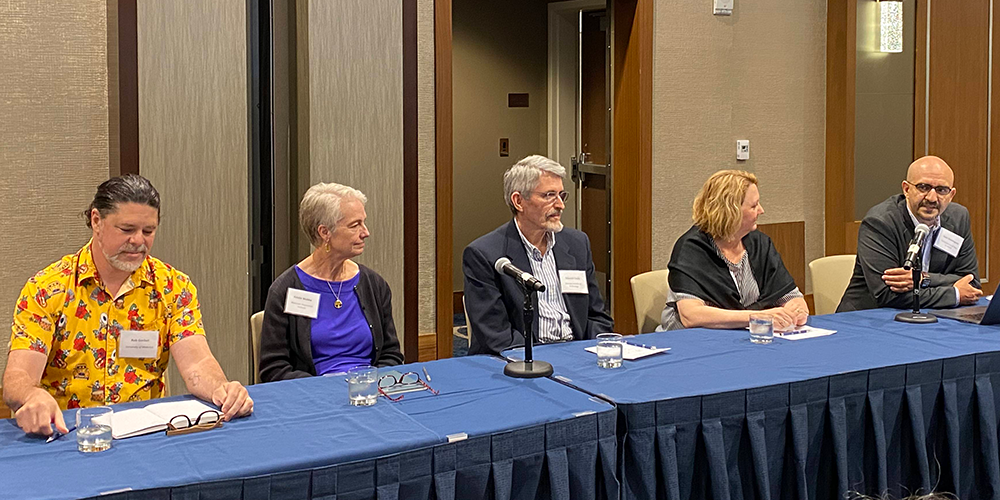
Fostering and Managing Community Engaged Research Projects
Panelists discussed the benefits and challenges of developing team-based projects with community partners, and stressed the importance of careful project sources and sustained interactions with local organizations.
Two participants shared lessons from a cross-institutional collaboration, the Liberal Arts Action Lab, in which students and faculty investigate questions posed by community partners in Hartford. Jeff Partridge, professor of English at Capital Community College, is the lab’s faculty director. Trinity College’s Abigail Fisher Williamson, associate professor of political science and public policy, directs the Center for Hartford Engagement and Research. Local groups, nonprofits or government agencies can propose research projects, which are evaluated and selected by the Action Lab and an advisory board of engaged Hartford residents.
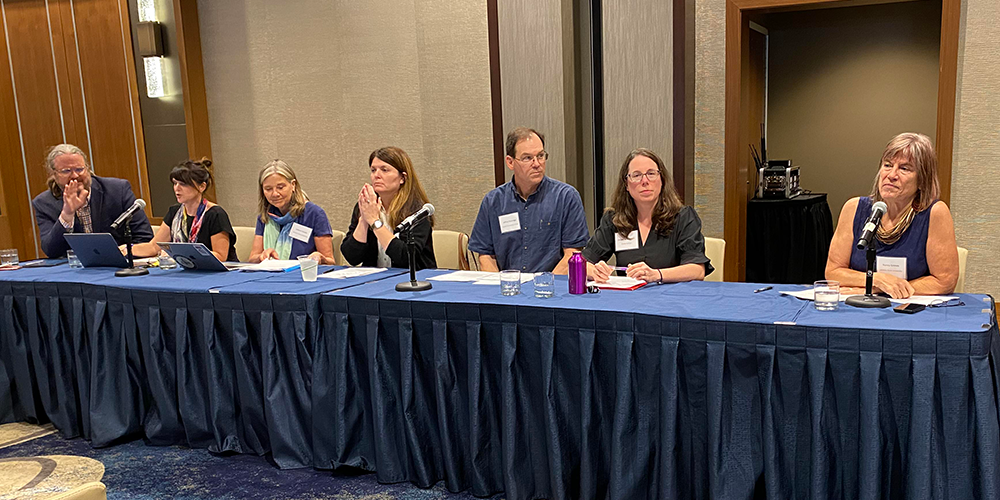
Resourcing and Sustaining Programs
In this panel, participants got to hear perspectives from leaders at three federal funding agencies. They reflected on how collaborative, project-based learning aligns with prevailing emphases by federal funders and wider trends across higher education.
Daniel Denecke, lead program director of NSF Research Traineeship and Innovations in Graduate Education, encouraged universities to collect data on the impact of project-based learning that goes beyond self-reporting. He also recommended analysis of career pathways data, five or ten years out, compared with nonparticipating students.
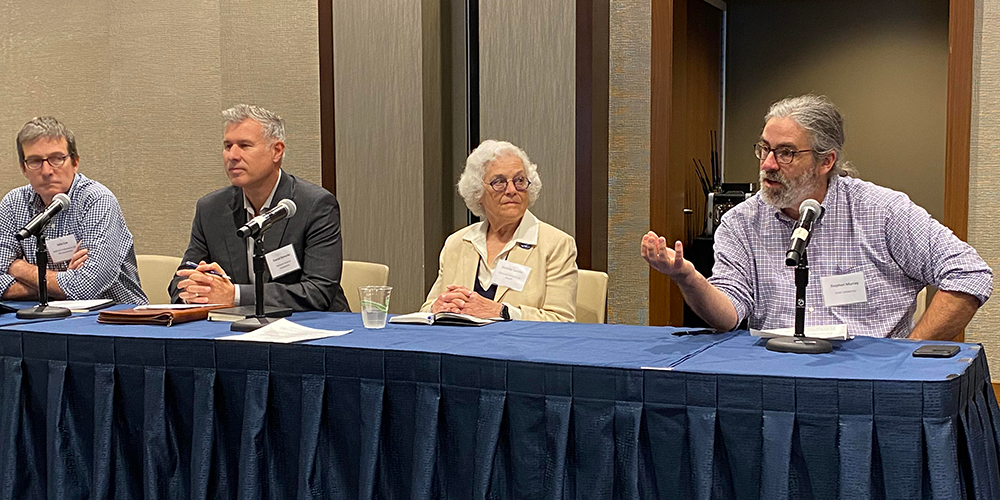
John Cox, senior program officer in the Office of Challenge Programs at the NEH, noted that many faculty and students don’t have the training to tell the stories of their successes in a meaningful way. “I’m interested in ways we can help our projects tell their stories,” he said, “so communities can understand the importance of this work, and what the students are learning and how it’s transforming them.”
Action Plans
On the second day, participants worked in facilitated groups to develop action plans for piloting, adapting, scaling and/or assessing project-based learning programs at their institutions.
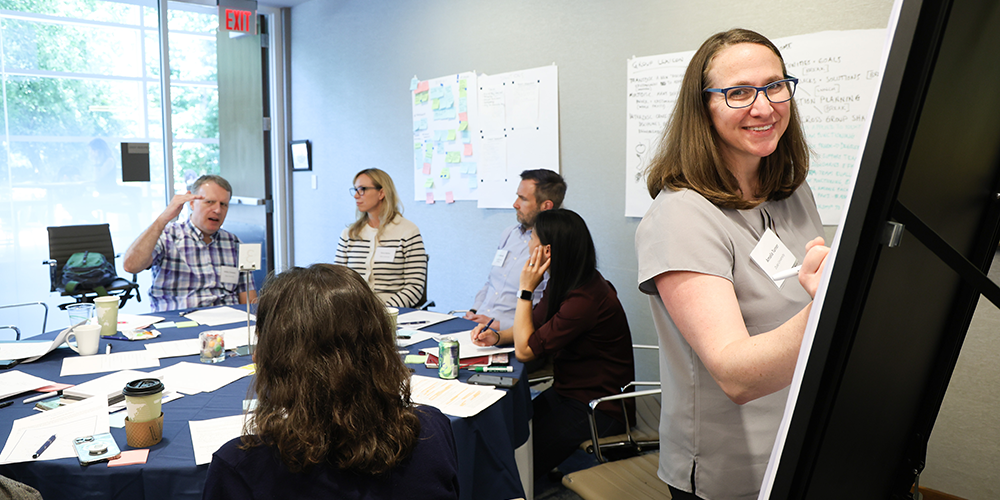
Coming back together, each group shared key takeaways. Many people opted to share contact information for continued collaboration.
Afterward, survey responses showed that participants found all aspects of the symposium to be either very useful or exceptionally useful, and that many people left with actionable ideas to implement in their home institutions.

“This symposium has demonstrated how much we can all benefit from each other’s insights and experiences,” Balleisen said, “as well as the growing commitment and energy around collaborative, project-based learning.” He added, "Given the evidence for the positive impacts of this form of pedagogy, we must reckon with an equity imperative — we need students at all types of institutions to be exposed to collaborative project work.”
One key opportunity, Balleisen noted, is for institutions to develop and refine shared approaches to assessment, which can play an important role in improving programs and making the case for their introduction or expansion.
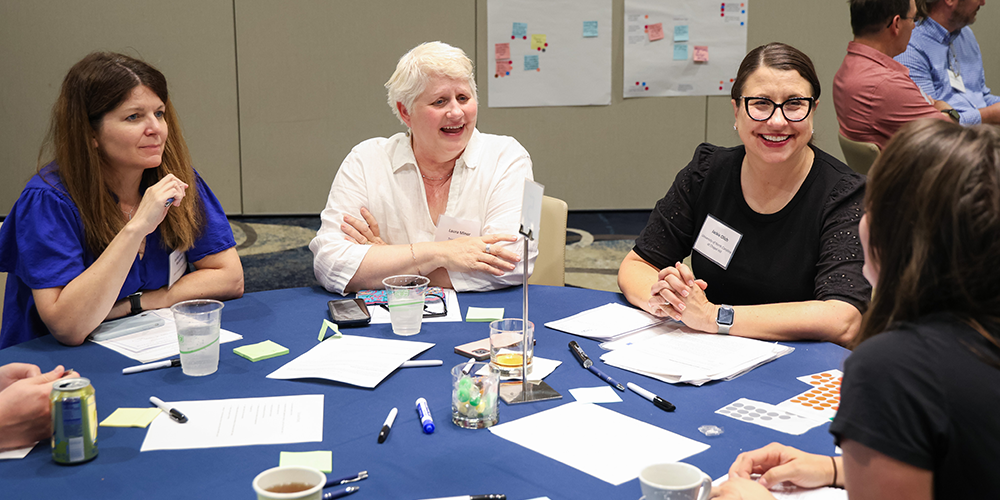
* The case studies will be made available as a public resource in the coming year. To be notified, please contact Laura Howes at laura.howes@duke.edu.
Learn More
- View the 2022-2023 Bass Connections annual report.
- Read about the impact of applied project-based learning on undergraduate student development.
- Find out how to propose a Bass Connections project for 2024-2025.